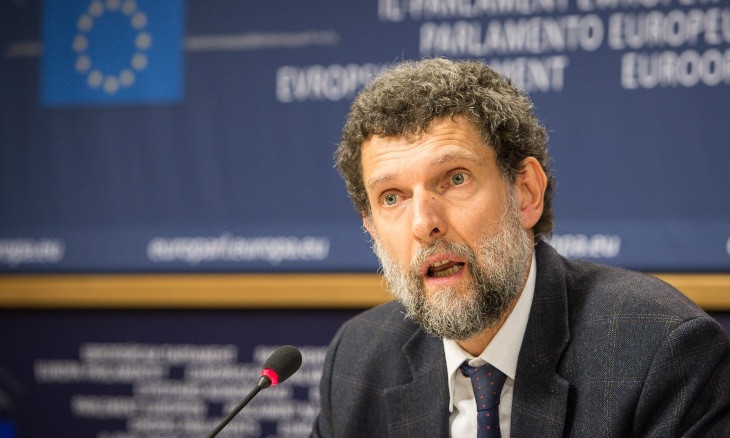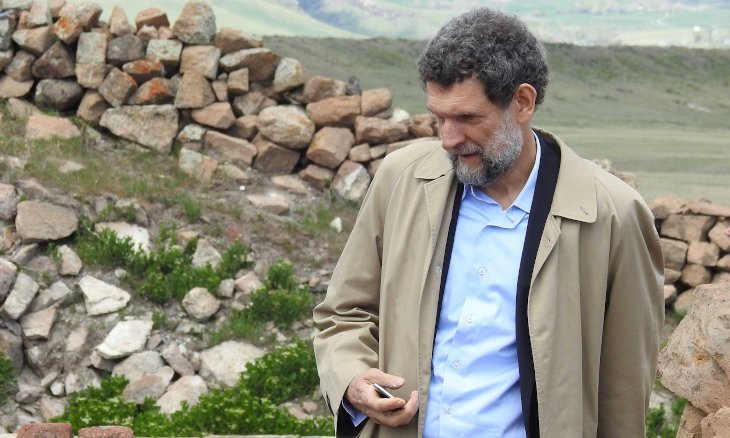Jailed Kavala says latest indictment against him 'illegal, arbitrary'
Jailed philanthropist, businessman and human rights defender Osman Kavala has said that the latest indictment against him was "illegal," as it's based on charges that had been already dropped. "The indictment doesn't involve any novel concrete evidence. The espionage charges aren't fitting to the legal definition. This indictment is arbitrary and illegal," Kavala said.
Duvar English
Philanthropist, businessman and human rights defender Osman Kavala has said that the second indictment against him was illegal, as it was based on charges that have been already dropped.
 Turkish prosecutors once again seek aggravated life imprisonment for Osman Kavala
Turkish prosecutors once again seek aggravated life imprisonment for Osman KavalaIncarcerated since Nov. 1, 2017 initially on charges of organizing the 2013 Gezi Park protests, Kavala is once again facing aggravated life imprisonment in a new investigation launched against him.
Although the philanthropist was cleared of charges related to the 2013 Gezi Park protests in a court ruling in February, he continued to stay in prison on the basis of a second and third set of charges filed by prosecutors – “attempting to overthrow the Constitutional order” and “espionage" charges.
The second indictment presents Kavala's “relationship” with former U.S. State Department employee and academic Henri Barkey as "new evidence" with regards to the Gezi case.
Former deputy for main opposition Republic People's Party (CHP) Barış Yarkadaş read a statement by Kavala on TV 100 on Oct. 8, relaying the philanthropist's message that the new indictment was based on the Gezi case.
 Turkey's Constitutional Court postpones reviewing Osman Kavala's appeal
Turkey's Constitutional Court postpones reviewing Osman Kavala's appeal"The indictment doesn't involve any novel concrete evidence, the European Court of Human Rights has already ruled that cell tower data is not evidence," Kavala said.
"The espionage charges aren't fitting to the legal definition. This indictment is arbitrary and illegal."
The main argument in the indictment is that the mobile phones of both Kavala and Barkey transmitted signals coming from the base stations at the same timeslot, which it said “proves” the two men were at “the same location” having a meeting.
The indictment said that Kavala and Barkey had "with one another shared national security information for the purposes of political or military espionage."
Meanwhile, Nacho Sanchez Amor, the European Parliament's rapporteur on Turkey, said the indictment "without any real evidence is outrageous". He said it "disdains" a European Court of Human Rights ruling that called for Kavala's immediate release.
New indictment against #OsmanKavala (aggravated life sentence +20 years!) without any real evidence is outrageous. Again, it plainly disdains the @ECHR_CEDH ruling. It's a surrealist prosecution that has already caused too much suffering#FreeOsmanKavala #OsmanKavalayaÖzgürlük
— Nacho Sánchez Amor (@NachoSAmor) October 9, 2020
Amnesty International called the indictment "absurd."
